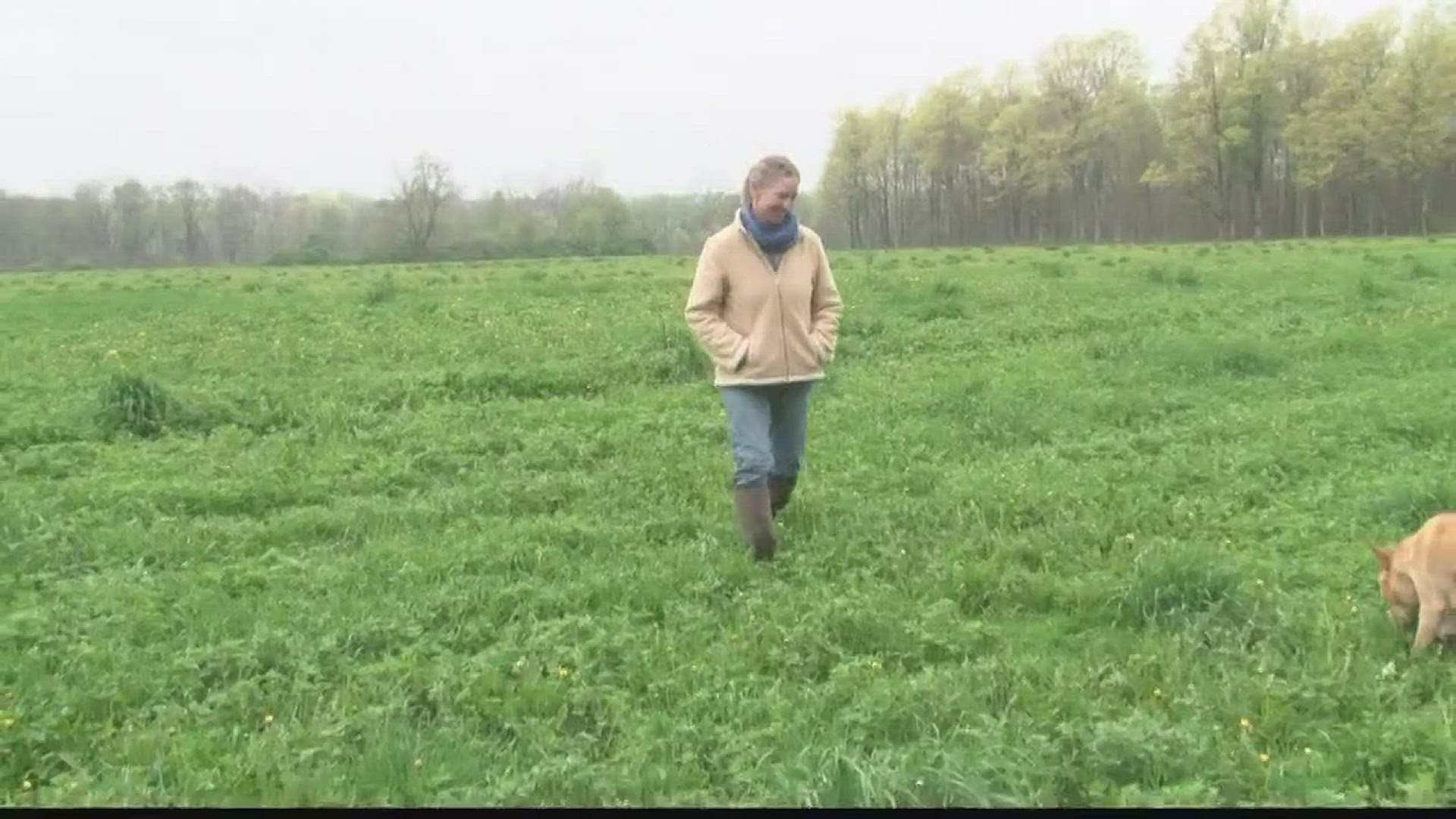SARDINIA, NY - Two years ago, National Fuel proposed to build the Northern Access Pipeline, a 96-mile project that would take natural gas from northern Pennsylvania through Allegany, Cattaraugus, Erie and Niagara counties, then be sold to market.
Last month, the state Department of Environmental Conservation rejected water permits for the project. Landowners, along the pipeline route, opposing the project thought things were over.
They were wrong.
Instead, some of them have been taken to court by National Fuel, for refusing to allow the company to build on their property.
Channel 2's Jeff Preval has looked into the struggle landowners are having to go through to protect their land and he asks National Fuel why they're still trying to force these owners to lease land rights to them.
"It's exhausting on a person-by-person basis," said Lia Oprea, who describes what its been like to fight National Fuel, which filed an eminent domain case against her in March. She refused to sign a lease, allowing the company to build part of the Northern Access Pipeline on her land.

Oprea lives in Sardinia and manages an alfalfa farm.
"It's been crazy, it started before the eminent domain, the research, the figuring out, what our landowner rights were," Oprea said. She had so many questions, she hired an attorney -- the fees are piling up.
"So far, about $5,000 to retain and then, it depends on the court case and how much, it's going to go up from there, it's a big expense," Oprea said.
Cattaraugus Creek runs along Oprea's farm.
"If we sign that eminent domain, that's basically signing away the creek for us, Cattaraugus Creek, it's a water issue for us, as well as, historic, family, nostalgia," she said
REPORTER: So you said no, absolutely not?
Her neighbor, Russel Vacinek, a long-time beef and dairy farmer, says National Fuel also wants to use his land to install part of the pipeline -- which he opposes. He sees the project as an "inconvenience," and he has also contacted an attorney.

REPORTER: How much have you had to pay for a lawyer?
"Right around $3,000," Vacinek said.
REPORTER: That's money out your pocket and you're a farmer.
"Right, yeah, sure," he said.
REPORTER: Every dollar, every cent really counts.
"Right," he responded.
But, Vacinek says he then had a reality check.
"I don't have the time or the resources to fight National Fuel in civil court," he said.
REPORTER: Ultimately, they did make you an offer, right?
"Yeah," he said.
REPORTER: An offer that you couldn't refuse?
"Yeah," he repeated.
He says he doesn't want to say how much he signed for, but he does say it was enough to pay off a farming loan he received from the federal government 20 years ago, saving him substantially in interest costs.
In April, the Department of Environmental Conservation denied National Fuel required water permits to build the pipeline -- saying in part -- the project would negatively affect water quality and wildlife. National Fuel is appealing that decision to the U.S. Second Circuit Court, requesting the DEC's decision be reversed.
2 On Your Side wondered, how many property owners are facing eminent domain cases, and how many people have agreed to lease agreements and received payouts?
"The 500-plus property owners that have reached mutual agreement, they have received their mutual agreed upon compensation," said Karen Merkel, spokesperson for National Fuel.

The company won't say how much its paid in compensation to landowners.
"Really, the one thing they would not be able to do is build a structure on the right of way easement, we have approximately 16 landowners who we unfortunately, were not able to reach mutual agreements with and we have asked the court to intervene," Merkel said.
REPORTER: Why does there need to be any eminent domain cases going forward, can't the company redesign the pipeline so that these landowners wouldn't be in the way?
"The route is really defined now," Merkel responded.
REPORTER: This company cannot make 16 alterations to the pipeline? That would not be feasible?
"Correct, it's often times not feasible with the rest of the route of the pipeline," Merkel said.
REPORTER: But, specifically with these court cases, why can't they just be dropped for now and brought up in the future, so these folks don't have to continue to go to court?
"We need to continue to move forward to prepare for in the event we do receive an approval and we are able to build this pipeline," Merkel said.
REPORTER: Does National Fuel believe that it can out-muscle these landowners?
"No, I think it's part of the natural gas development and transportation process, we do work hard to reach a mutual agreement, but unfortunately, there are those cases where we're not able to do that," Merkel said.
For Oprea, she says the fight goes on.
"They have the power, they've got the resources to just wear you down, wear you down, we're going to continue to fight as long as we can," Oprea said.
Oprea has a court date in two weeks.
Because of the denial by the state, and the eminent domain cases, National Fuel has now pushed back plans to build the pipeline in 2020. National Fuel knows there is a possibility that if the pipeline continues to be denied, landowners who have received compensation for access to their land, will not have to pay any of that back. When 2 On Your Side asked the company whether that was smart business, National Fuel said if the pipeline is ever approved, those payments are a great investment.

